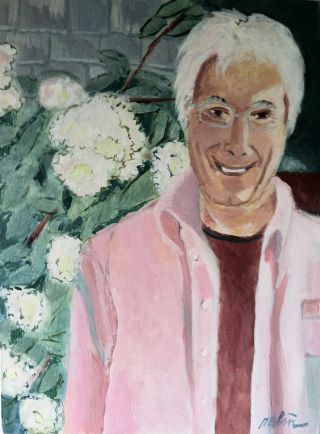Happiness
How to Sustain Happiness
A Personal Perspective: The answer lies in human relationships.
Posted May 7, 2023 Reviewed by Kaja Perina
“Ring the bell which still can ring
Forget your perfect offering
There is a crack in everything
That's how the light gets in..."
Leonard Cohen
“Only by confronting constraint and creating hope can a future be complexly and compellingly imagined.”
Frederick Buell, “From Apocalypse To Way of Life”
We all agree that there are mental and physical benefits from attaining happiness. Don’t get me wrong, being happy, awestruck, optimistic and positive has real value. Yet, it is important to start by recognizing that the word e.g., "happiness" is not the "thing," like the map is not the territory. If this is not understood, it can lead to frustration or happiness interruptus.
The terrain or behavior that can occur from these promising words needs to be reframed in a multitude of ways to allow for new possibilities. We must view human interactions as interdependent. Interdependence is the key to happiness. For instance, it takes two to know one, we may be individuals yet we are also simultaneously in relational contexts beyond our individuality. A family or community can have a collective spirit that is more encompassing, yet still reflective of its members. The ecology of our planet and surroundings offers us a way to recognize how to alter injurious actions and thereby to become happier. The key here is accepting and nurturing how all these parts are capable of being in mutual harmonious relationships.

Dacher Keltner writes in his new book, Awe: The New Science of Everyday Wonder and How It Can Transform Your Life, “Through moving in unison and convergence in feeling, a transformation in consciousness occurs: we shift from an egocentric view, seeing the world through our eyes only, to a shared attention to what is transpiring." He offers us a means to unlearn avoiding our human potential through synchronizing with others.
All the recent studies on happiness, joy, etc. and living a healthy life originate within and between our relationships. It points to our need to recalibrate our interdependency. "There is broad agreement among happiness researchers and scientists that social relations are essential for people’s happiness.” states Meik Wiking in The Little Book of Hygge: Danish Secrets to Happy Living.
Resolving issues from climate change to adversarial interpersonal and polarization conflicts all comes down to relational energy that corrects and mitigates the tension that challenges happiness. Keltner further elaborates, "The epiphany of awe is that its experience connects our individual selves with the vast forces of life. In awe we understand we are part of many things that are much larger than the self."
Here is what we can do to start this process of finding our happiness.
1) Celebrate our interdependency and relationships with win-win volleys of empathy and concern within the many different contexts that make up our world i.e. education, media, politics, family etc.
It is time to focus on what Nora Bateson, President of the International Bateson Institute describes as " Warm Data…a process that helps us understand how all our interactive parts form patterns that connect and are based on relationships that are interdependent." It has been demonstrated via longitudinal research that relationships are more fulfilling for people than is attaining a high income, or possessing a high IQ. The win-win volley of connecting is like agreeing to keep the ball moving on a ping pong table. If one spikes the ball both will lose, yet when there is a respect and willingness to collaborate and keep the momentum going it creates a relationship based on the rhythm of expression and paraphrasing, a recipe of comfort and happiness.
2) Accept and cherish the gift of conflict as the source of creativity and a means to enhance relationships
If we see conflict as the grist of creativity, as any artist will tell you, rather than as negative, we can unlearn what stops us from being optimistic. Eva Holland writes "... science suggests that optimism is best understood not as an unchanging attitude but as a pattern of responses — which taken together dictate how we view our prospects." in her 2023 Times piece, “Everything will turn out fine.” This underscores how creativity offers improvisational opportunities for novel relational possibilities.
3) Share more and more stories and poems celebrating context beyond content.
When we are not buying into narrow cause-and-effect reasoning, we can mutually learn and unlearn together through the sharing of everyday stories. This highlights our uniqueness and interdependency. Stories and poetry are powerful tools and likewise safe, non-adversarial forums to care for each other and to mend our differences. There is an embedded unifying force in nature of which we are an integral part. It is elaborated in patterns that are messy and beautiful. We are part of this ecological process, and regardless of political and cultural beliefs that may divide us, we can attain and sustain happiness.


